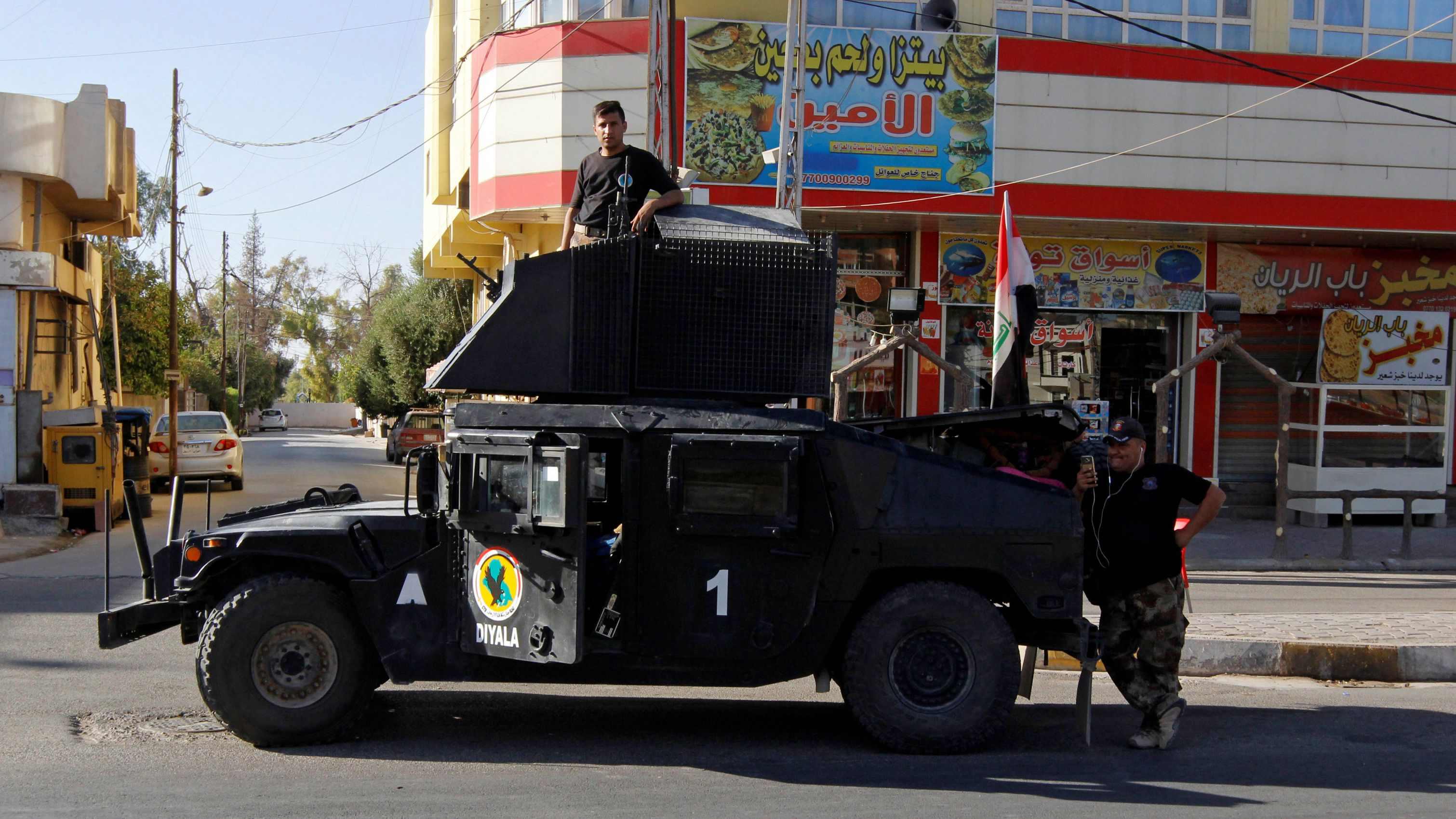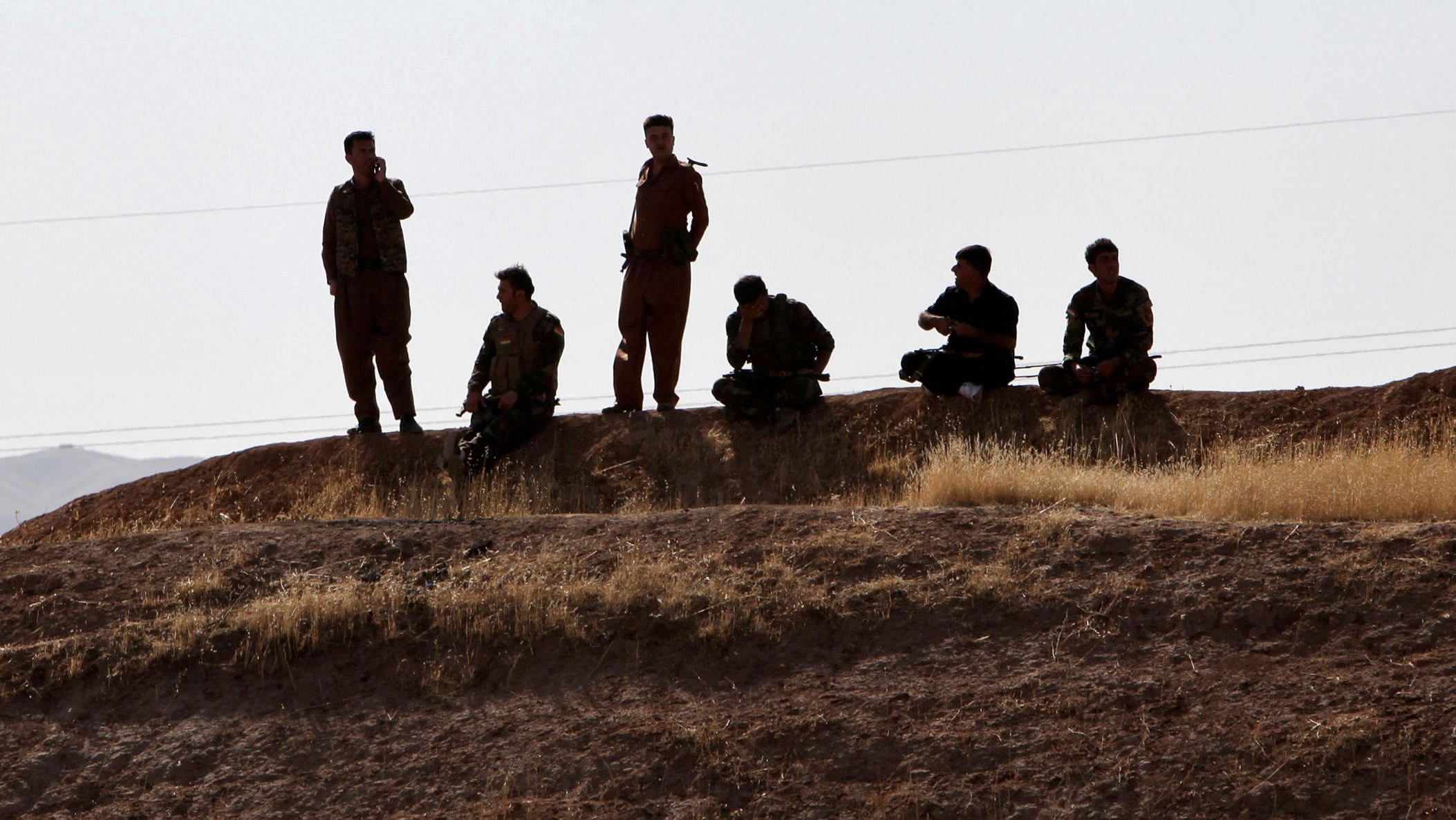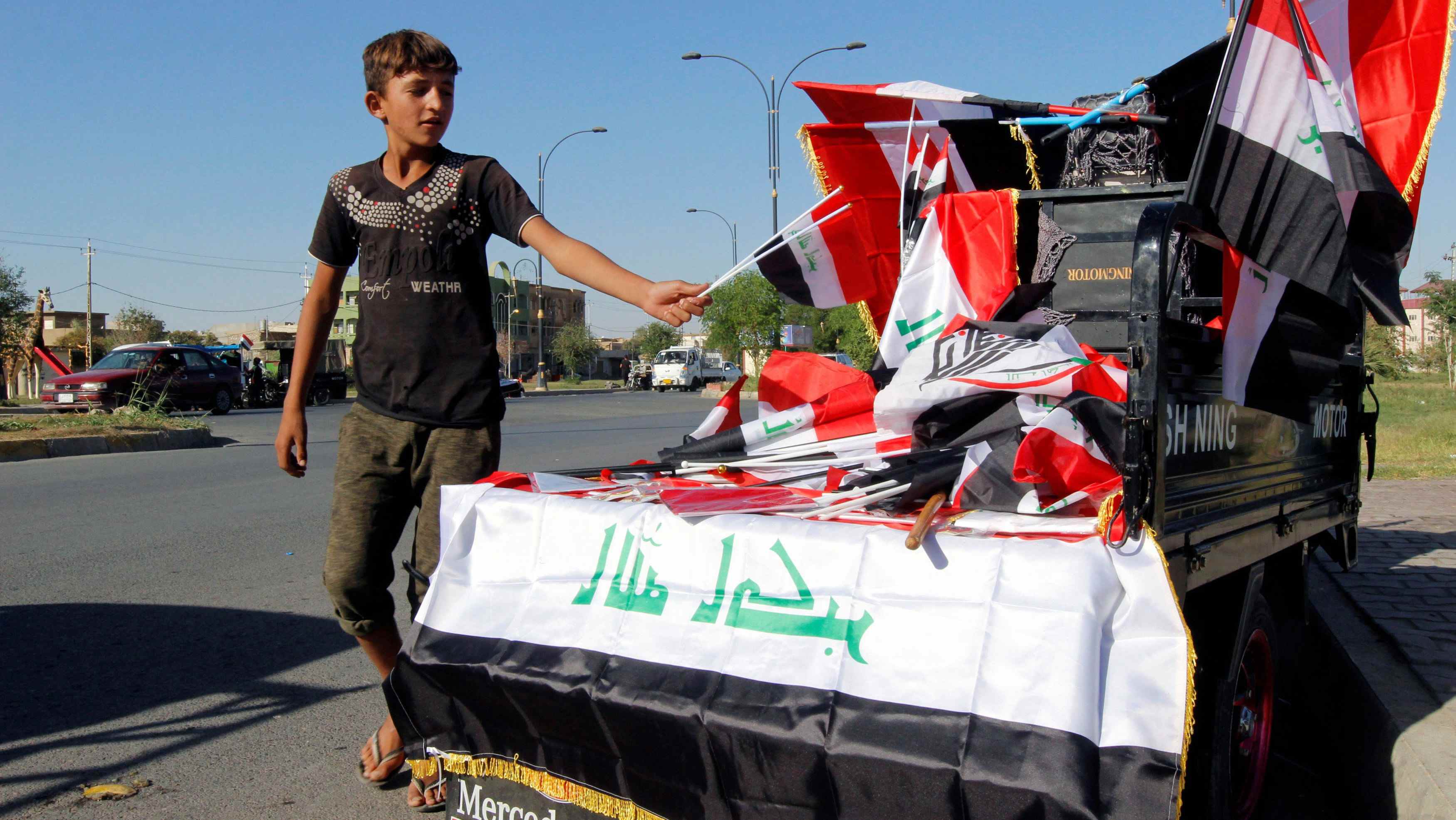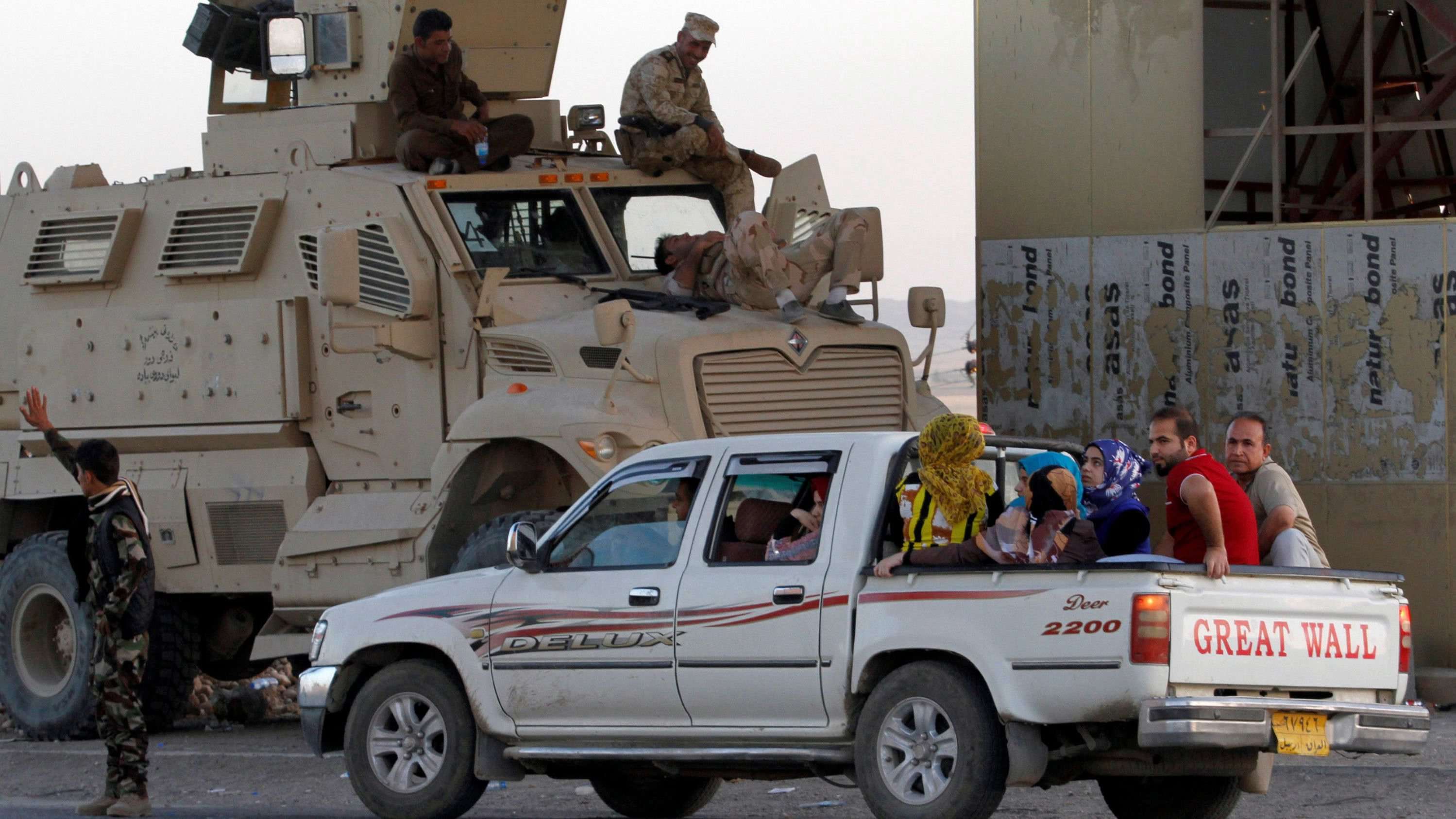
Politics
08:29, 21-Oct-2017
Iraqi forces retake Kirkuk province after clashes with Kurds
CGTN

The oil-rich province of Kirkuk is back in the control of Iraqi forces, who reclaimed a final district in a three-hour battle with Kurdish Peshmerga fighters on Friday. Neither side gave information about casualties.
The district of Altun Kupri lies on the road between the city of Kirkuk – which fell to Iraqi forces on Monday – and Erbil, capital of the semi-autonomous region of Kurdistan in northern Iraq that voted in a referendum last month to secede from Iraq against Baghdad's wishes.
The Iraqi central government forces have advanced into Kirkuk Province largely unopposed as most Peshmerga forces withdrew without a fight.

Kurdish Peshmarga forces are seen near Altun Kupri, between Kirkuk and Erbil,
Iraq, October 20, 2017. /Reuters Photo
Kurdish Peshmarga forces are seen near Altun Kupri, between Kirkuk and Erbil, Iraq, October 20, 2017. /Reuters Photo
The fighting at Altun Kupri marked only the second instance of significant violent resistance by the Kurds in Kirkuk province. Dozens were killed or wounded in the previous clash on Monday, the first night of the government advance.
The government's reclamation of Kirkuk has transformed the balance of power in northern Iraq and is likely to scuttle the independence aspirations of the Kurds, who voted overwhelmingly on September 25 to secede from Iraq and take the oil fields of Kirkuk with them.
US urges end to clashes
The US State Department said on Friday it was concerned by reports of violent clashes around Altun Kupri.
"In order to avoid any misunderstandings or further clashes, we urge the central government to calm the situation by limiting federal forces’ movements in disputed areas to only those coordinated with the Kurdistan Regional Government," it said in a statement.

A boy sells Iraqi flags on a street in Kirkuk, Iraq, October 19, 2017. /Reuters Photo
A boy sells Iraqi flags on a street in Kirkuk, Iraq, October 19, 2017. /Reuters Photo
The State Department made clear that even though federal authority was reasserted over "disputed areas," that in no way changes their status – "they remain disputed until their status is resolved in accordance with the Iraqi resolution" in what appeared to be a nod to the Kurds and their assertion that they have a stake in these territories.
Iraqi forces are seeking to reestablish Baghdad's authority over territory which the Kurdish forces occupied outside the official boundaries of their autonomous region, mostly seized since 2014 in the course of the war on ISIL militants.
Cleric calls for protection of Kurds
Iraq's top Shi'ite cleric, Grand Ayatollah Ali al-Sistani, called on Friday for the state to protect Kurds in northern Iraq, a rare political intervention by a figure whose words have the force of law for most of Iraq's Shi'ite majority.
Sistani's call, issued at the Friday prayer in the holy Shi'ite city of Kerbala by one of his representatives, came amid reports of abuses against Kurds in areas evacuated by the Kurdish Peshmerga including Kirkuk, Tuz Khormato and Khanaqin.

Displaced people ride in the back of a vehicle north of Kirkuk, Iraq, October 19,
2017. /Reuters Photo
Displaced people ride in the back of a vehicle north of Kirkuk, Iraq, October 19, 2017. /Reuters Photo
Iraq's post-Saddam constitution allows the Kurds self-rule in three mountainous northern provinces and guarantees them a fixed percentage of Iraq's total oil income, an arrangement that saw them prosper while the rest of the country was at war.
Although Kirkuk is outside the autonomous region, many Kurds consider it the heart of their historic homeland and its oil to be their birthright. Its loss makes their quest for independence appear remote, since it would leave them with only about half the oil revenue they had sought to claim for themselves.
6188km
Source(s): Reuters

SITEMAP
Copyright © 2018 CGTN. Beijing ICP prepared NO.16065310-3
Copyright © 2018 CGTN. Beijing ICP prepared NO.16065310-3